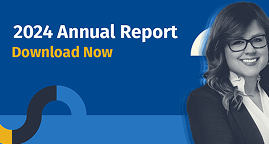About estate planning.
A strong estate plan includes a fully funded funeral plan, but preparing for other end-of-life expenses is crucial to provide peace of mind for you and your loved ones.
What is estate planning?
Estate planning encompasses your decisions about your financial assets and end-of-life wishes, often including written legal documents so your choices are not only known but enacted at the time of your death. Funeral planning is an important part of a strong estate plan as well as a will, trust, power of attorney and additional documentation detailing your final decisions.

What are the benefits of estate planning?
Clarity.
You and your loved ones can know exactly how your estate should be handled, based on your final wishes.
Peace of mind.
You can know your estate is in order and you have completed the steps to prepare and protect your loved ones.
Access to funds.
Your family can pay for estate closing costs as soon as possible after your death.
Discover how we can help.
Homesteaders is committed to providing products and services that help you make smart, secure end-of-life plans. We offer a Beneficiary Liquidity Plan® — providing you and your family with peace of mind and quick access to funds when needed most.
Most traditional life insurance plans require a death certificate to process the claim. Depending on the state, obtaining that documentation could take several months, potentially leaving your family to cover estate closing costs and other expenses out of pocket while they wait for the claim payment.
More than half of families report going into debt after the loss of a loved one.* With a Beneficiary Liquidity Plan®, if your beneficiaries choose to file their claim through a licensed funeral provider, they could have access to policy funds within 24 to 48 hours.
*According to the 2022 “The Cost of Dying” report published by Empathy.com.
With a Beneficiary Liquidity Plan®, you can reallocate existing funds into a single premium whole life insurance policy. Those funds can help cover expenses your family will likely incur in the months following your death, including your loved ones’ travel expenses, mortgage payments, medical bills, legal fees and other costs associated with closing out your estate.
Homesteaders works directly with thousands of funeral providers across the country to complete the claims process, so your family won’t need to wait for a copy of a death certificate to access important funds.
Most traditional life insurance plans require a death certificate to process the claim. Depending on the state, obtaining that documentation could take several months, potentially leaving your family to cover estate closing costs and other expenses out of pocket while they wait for the claim payment.
More than half of families report going into debt after the loss of a loved one.* With a Beneficiary Liquidity Plan®, if your beneficiaries choose to file their claim through a licensed funeral provider, they could have access to policy funds within 24 to 48 hours.
*According to the 2022 “The Cost of Dying” report published by Empathy.com.
With a Beneficiary Liquidity Plan®, you can reallocate existing funds into a single premium whole life insurance policy. Those funds can help cover expenses your family will likely incur in the months following your death, including your loved ones’ travel expenses, mortgage payments, medical bills, legal fees and other costs associated with closing out your estate.
Homesteaders works directly with thousands of funeral providers across the country to complete the claims process, so your family won’t need to wait for a copy of a death certificate to access important funds.
FAQs about estate planning.
What documents do I need for an estate plan?
A well-designed estate plan often includes a will, trust(s), power of attorney, healthcare directive, beneficiary designations, legacy letter and a fully funded funeral plan to cover you and your family’s end-of-life needs. A good place to start is with a Beneficiary Liquidity Plan® and Homesteaders-funded funeral plan. We recommend working with your local estate planning attorney and funeral provider to create a comprehensive estate plan customized to your unique needs and wishes.
What is the difference between estate planning and funeral planning?
Estate planning includes deciding how and where to distribute your financial assets, property and belongings after you die, often in legal documentation. Your funeral plans are a crucial piece of your estate plan, but your estate plan encompasses all of your assets and end-of-life decisions.
Can I include funeral planning in my estate plan?
Yes. A fully funded funeral plan is key to a strong estate plan. Planning and paying for your funeral in advance gives you and your loved ones peace of mind — knowing your wishes will be respected and your loved ones will have space to grieve, instead of making difficult decisions. Learn more about preplanning your funeral.
When should I start estate planning?
Now is the best time to plan, regardless of age or wealth. Everyone has an estate, which means everyone needs an estate plan. Estate planning provides protection for your decisions about your assets and plans after you die or if you’re unable to handle affairs on your own.
Blogs for estate planning.
Ready to start planning?
Homesteaders is here to help, wherever you are in your estate planning process.






